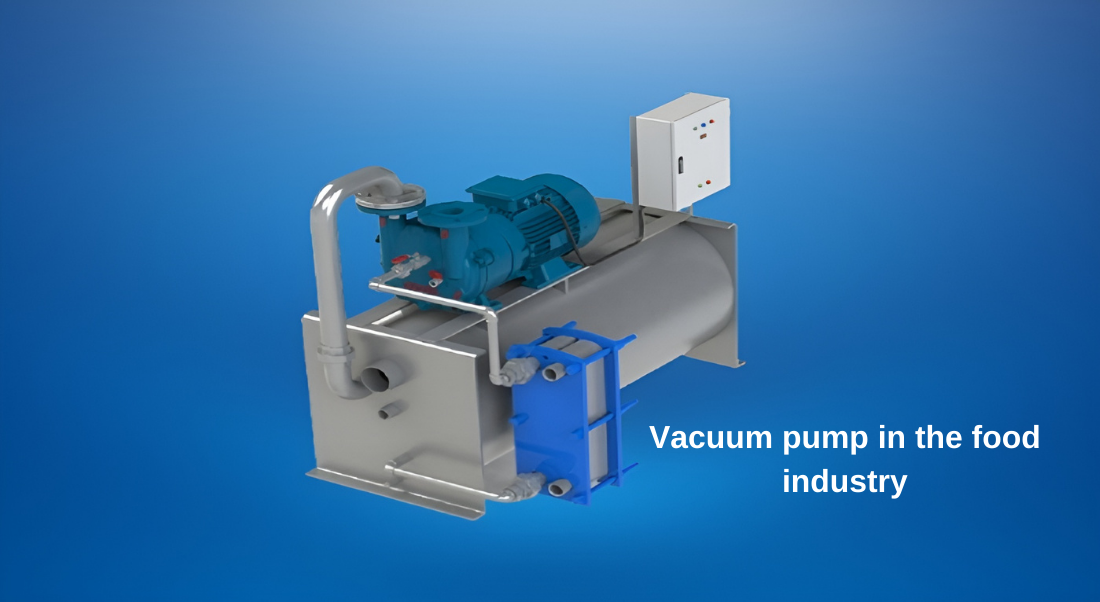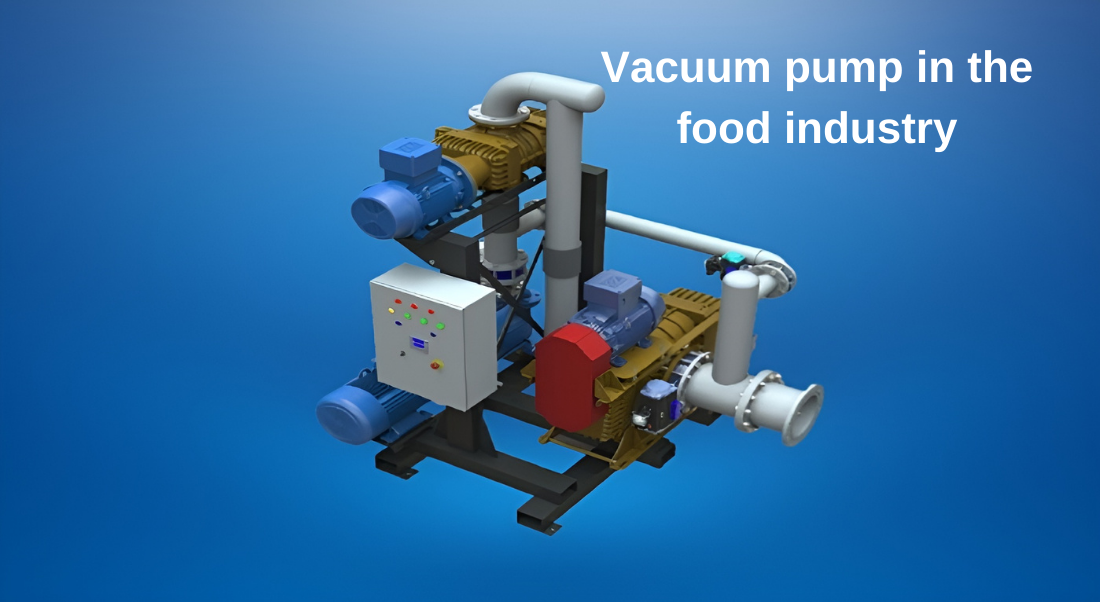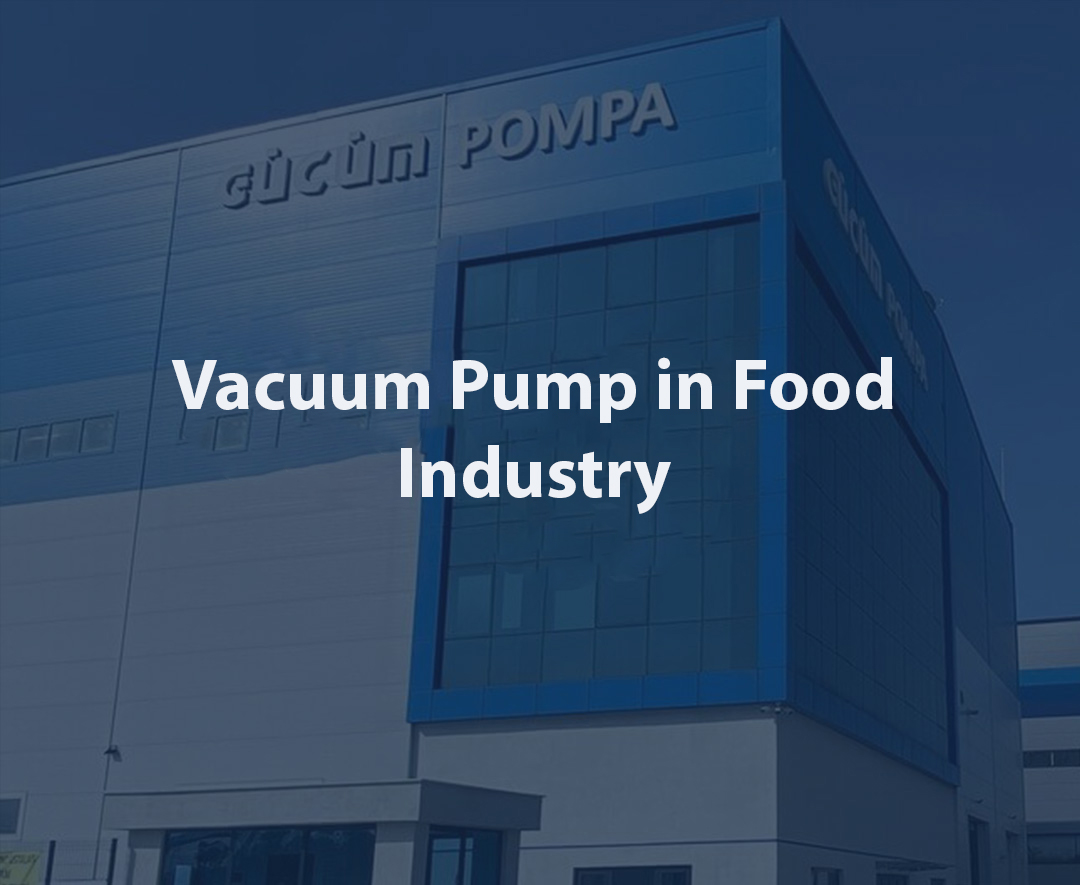Vacuum pump in the food industry
Table of Contents
- How are Vacuum Pumps Used in the Food Industry and What Benefits Do They Provide?
- How Do Vacuum Pumps Support Hygiene Standards and Improve Product Quality?
- What is the Energy Saving and Environmental Impact of Vacuum Pumps?
- How are Vacuum Pumps Used in Food Packaging Processes and What Kind of Advantages Do They Offer?
- How Do Vacuum Pumps Extend the Shelf Life of Food Products and Benefit Consumers?
- What is the Cost-Effectiveness Relationship of Vacuum Pumps in Food Production?
- What is the Importance of Vacuum Pumps in the Food Industry and What Are the Latest Technological Developments?
How are Vacuum Pumps Used in the Food Industry and What Benefits Do They Provide?
In the food industry, vacuum pumps offer significant advantages by being utilized in various processes. These pumps are commonly used in stages such as packaging, sealing, filling, and food processing. Vacuum pumps play a critical role, particularly in preserving food products and maintaining their freshness for extended periods.
By reducing the amount of air inside packaged food products, these pumps minimize the risk of spoilage and thus extend the shelf life of products. Additionally, vacuum pumps facilitate the removal of air during the packaging of food products, ensuring tight sealing of the packaging and preventing damage to products during transportation.
These pumps also contribute to maintaining hygiene standards during the processing and packaging of products. The use of vacuum pumps in the food industry not only enhances product quality but also saves costs associated with energy and labor. Consequently, vacuum pumps enhance efficiency in the food industry, offering consumers longer shelf life and fresher products, thereby increasing the competitiveness of food businesses and ensuring customer satisfaction.

How Do Vacuum Pumps Support Hygiene Standards and Increase Product Quality?
Vacuum pumps play a critical role in supporting hygiene standards and increasing product quality in the food industry. These pumps help ensure hygienic conditions by minimizing the risks to which foods are exposed during processing. Pumps operating under vacuum prevent the proliferation of microorganisms in the environment in which products come into contact, thereby ensuring the cleanliness and safety of products.
Additionally, vacuum pumps minimize air intake during the processing and packaging of food products, preventing oxidation and spoilage. This helps preserve the freshness and quality of products. Foods packaged under vacuum are better protected from external factors and maintain their durability for longer periods.
Vacuum pumps also provide convenience in terms of cleaning and maintenance requirements. Manufactured with hygienic materials and easily cleanable, these pumps assist food producers in meeting hygiene standards. As a result, vacuum pumps contribute to enhancing product quality in the food industry, thereby offering customers safer and healthier food products. This, in turn, enhances the reputation of businesses and ensures customer satisfaction.
What Are the Energy Saving and Environmental Impacts of Vacuum Pumps?
Vacuum pumps offer significant advantages in terms of energy savings and environmental impact. These pumps operate with less energy consumption during processes, reducing energy costs for businesses. Additionally, vacuum pumps enable more efficient production processes by using less energy during the processing and packaging of products.
Furthermore, the environmental impact of vacuum pumps is minimal. Reduced energy consumption decreases emissions resulting from fossil fuel combustion, thus reducing greenhouse gas emissions. Moreover, the long lifespan of vacuum pumps and minimal maintenance requirements also have a positive environmental impact. Consequently, vacuum pumps not only save energy, reducing operating costs, but also contribute to sustainable production processes by reducing environmental impact.
How Are Vacuum Pumps Used in Food Packaging Processes and What Advantages Do They Provide?
Vacuum pumps play a critical role in food packaging processes. These pumps reduce the amount of air inside packaged food products, creating a vacuum inside the package. This increases the freshness and durability of the products. Foods packaged under vacuum reduce the risk of oxidation and spoilage, resulting in a longer shelf life. Additionally, vacuum packaging ensures better protection against external factors, thereby preserving the quality and freshness of the products.
Vacuum pumps also accelerate the packaging process and increase efficiency. Packaging with less air takes up less space during storage and transportation, reducing storage costs. As a result, vacuum pumps used in food packaging processes ensure products stay fresh for longer periods, reduce operating costs, and increase customer satisfaction.
How Do Vacuum Pumps Extend the Shelf Life of Food Products and Benefit Consumers?
Vacuum pumps extend the shelf life of food products and provide many benefits to consumers. These pumps reduce the amount of air inside packaged food products, preventing oxidation and spoilage of products. Thus, the freshness and quality of food products are preserved for longer periods.
Foods packaged under vacuum prevent the growth of harmful microorganisms, thereby reducing the risk of product spoilage. This significantly extends the shelf life of food products. Consumers can reduce waste and promote healthier food consumption by purchasing food products that stay fresh for longer periods.
Additionally, vacuum packaging provides better protection against external factors for food products, reducing the risk of damage during transportation and storage. Consequently, food products packaged using vacuum pumps offer consumers options that can be consumed fresh and safely for longer periods, reduce waste, and increase customer satisfaction.

What is the Cost-Effectiveness Relationship of Vacuum Pumps in Food Production?
Vacuum pumps are an important factor in cost-effectiveness in food production. These pumps reduce costs by increasing efficiency during processing, packaging, and storage of products. For example, food products packaged under vacuum have a longer shelf life, contributing to waste reduction and lower storage costs. Additionally, vacuum pumps consume less energy during product processing, thus reducing energy costs. Moreover, the better protection of products against external factors, reduced risk of damage, and decreased product losses due to vacuum packaging also contribute to cost-effectiveness. Consequently, the use of vacuum pumps increases efficiency in food production, reduces operating costs, and ultimately enhances profitability for businesses.
What Is the Importance of Vacuum Pumps in the Food Industry and What Are the Latest Technological Developments?
Vacuum pumps play a critical role in the food industry in processes such as processing, packaging, and storage of products. These pumps are used to maintain the freshness and quality of food products. Vacuum pumps reduce the amount of air inside packaged food products, preventing oxidation and spoilage, thereby extending the products' shelf life. Additionally, vacuum packaging provides better protection against external factors and reduces the risk of damage during transportation.
The latest technological advancements allow vacuum pumps to become more efficient and user-friendly. For example, vacuum pumps equipped with smart sensors can automatically monitor and adjust product processing processes. Moreover, energy consumption is reduced, and maintenance requirements are minimized by using more efficient motors and materials. Some vacuum pumps are integrated with Internet of Things (IoT) technology, providing remote monitoring and control capabilities. As a result, these technological advancements enhance the effectiveness of vacuum pump usage, increasing efficiency and product quality in the food industry.
